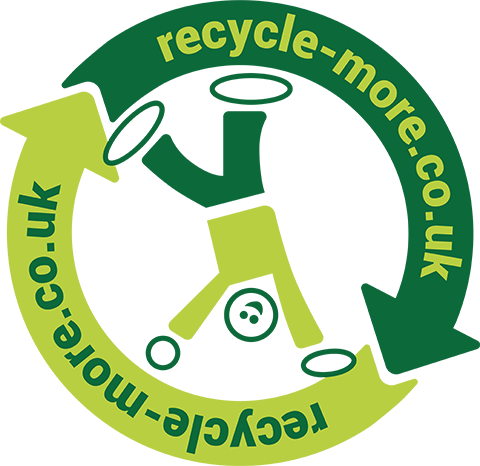
♪ Have yourself a very eco Christmas ♪
Louise Tompkinson
Dec 03, 19
Top tips for a sustainable festive season, that won't cost the earth
Christmas is a time for giving and sadly also for wasting. Unilever reports that each year in the UK, the equivalent of 4 million Christmas dinners are wasted. This figure amounts to a whopping 263,000 turkeys, 7.5 million mince pies, 740,000 slices of Christmas pudding, 17.2 million Brussels sprouts, 11.9 million carrots and 11.3 million roast potatoes! Each host spends an average of £112 on food alone, which equates to £64 million of squandered food each Christmas!
Unfortunately, it doesn't just stop at food. It is reported that 227,000 miles of wrapping paper is used in the UK each year, over 83km2 of this will end up in our bins and it's estimated that we get through 40 million rolls of sticky tape too! 189 million batteries are needed to power new electrical and electronic devices and on average seven batteries are thrown away per household over Christmas. To top it off, the equivalent of 33 million trees end up in the bin in the form of Christmas cards. These figures demonstrate just a few Christmas traditions that we, as a nation, need to break.
Here are my top tips on how to strive towards having a sustainable Christmas. After all, it is the season of goodwill:
Food
- Use up leftovers in sandwiches, soups, stews and curries - See BBC Good Food website for inspiration
- Compost your organic waste – Veg peelings, egg shells, coffee grounds etc
- Try to buy organic where possible and packaging free – Support local independent businesses such as farm shops, green grocers, butchers, fish mongers etc
- Head to the Love Food Hate Waste website for tips and recipes
Gift ideas
- Gift experiences rather than material items
- Buy local and support small businesses
- Think sustainable – Natural materials, minimal packaging (See my previous blogs for plastic free alternatives to toiletries and clothing)
- If you are struggling to think of present ideas, gift something that helps the environment such as local honey, re-usable cups/flasks, gardening items and accessories (Think bird boxes, bee hotels and seed balls), or a membership
- Homemade gifts are thoughtful and can be made so they are zero / low waste
- Donate to charity instead



Gift wrap, cards and decorations
- Go electronic – Send e-cards, emails or texts instead of physical cards
- If you do buy cards, ensure they are FSC approved, that profits go to charity and avoid glitter
- Re-use cards you receive as gift labels for the following year
- Gift wrap is often not recyclable. Instead use brown kraft paper, which you can decorate using eco-friendly pens/prints or fabrics
- Re-use the bag someone gave you last year. Many of us do this
- Don’t wrap gifts at all. Use a stocking, Santa sack or re-usable bags instead to fill with unwrapped presents
- Opt for a real Christmas tree rather than an artificial (plastic) tree, but make sure it's FSC approved
- Ensure to dispose of your real Christmas tree correctly. If it still has a root ball you can replant it, or alternatively local authorities and garden centres often offer easy recycling options
- If you're using Christmas lights, ensure they are LED as they are more efficient, durable and safer. Turn them off overnight and when you're out to save electricity
- DIY crackers – Craft your own using brown paper, loo roll tubes, twine, snaps and fill with a useful, plastic-free gifts. You could even have a go at writing your own jokes!
- Zero-waste advent calendars - Invest in a reusable calendar that you can fill with your own goodies
Recycling, waste electronics and batteries
- Keep on top of your recycling collections and remember to segregate materials correctly. There are usually fewer collections over the festive period and contaminated recycling may mean that recyclable items end up going to landfill
- Flatten cardboard to save space, with fewer collections you can quickly run out of room to store recycling until it can be collected. Ensure not to let it get wet as this can affect its recyclability
- Dispose of batteries correctly - Look up your nearest collection point using recycle-more's Bank Locator, which can also be used to see where best to dispose of many different items at the end of their life (such as waste electrical or electronic items)
- Re-gift unwanted presents or donate them to charity. Don't just throw them away
- Up-cycle packaging, e.g. turn empty bottles into candle holders
- Use the scrunch test to determine whether wrapping paper can be recycled - If you scrunch it into a ball and it holds it can be widely recycled, but if it unfolds or springs back it cannot
- Remove sticky tape, sections containing foil or glitter and decorations such as ribbons and bows from wrapping paper and check that your local authority can take collect it for recycling before placing in your recycling container





